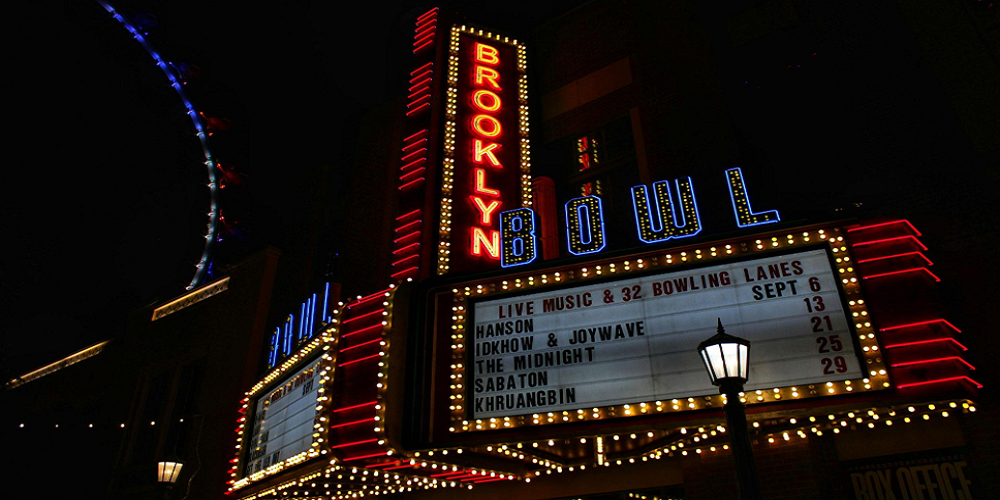
The combination of gaming, theatre, and music in casinos is more than entertainment; it’s a cunning tactic meant to heighten the sensory experience and sway patron behaviour.
Such elements, which range from the dramatic themes that adorn gaming floors to the jazzy rhythms that reverberate through the hallways of traditional casinos, do more than simply provide entertainment; they create a distinct, immersive experience that entices visitors to stay and interact more fully with their surroundings.
Psychological Influence of Music on Gambling Behaviour
Music profoundly affects human emotions and behaviours, and casinos capitalize on this to create environments that encourage longer play and higher engagement. Studies have shown that the tempo and genre of music influence the speed and nature of gambling decisions.
For instance, fast-paced music encourages quicker bets and riskier behaviours, while slower, more relaxing tunes make players more deliberate and extend their time at the tables.
Research has backed the use of sound, indicating that specific soundscapes can trigger positive emotions and even alter time perception, keeping players engaged for longer than they might realize.
Slot machines, in particular, rely heavily on sound to manipulate emotions. The familiar jingles accompanying small wins give players a sense of achievement, even if the win is minor. This “reward sound” taps into the brain’s dopamine pathways, creating a feedback loop that motivates continued play.
The background music in these areas tends to be upbeat and celebratory, fostering a high-energy atmosphere that keeps players hooked.
The Historical Role of Music in Casinos
The relationship between music and gambling isn’t new. Historically, casinos have long used music to enhance their appeal, starting with the Jazz Age of the 1920s. Jazz’s improvisational and lively nature complemented the sense of unpredictability and excitement associated with gambling. Moving into the swing era of the 1940s, big band music became synonymous with the golden age of gambling, especially in cities like Las Vegas and Atlantic City.
Performances by legends like Duke Ellington and Frank Sinatra at famous venues set the tone for what casinos would become: spaces where high-profile music and gambling would intersect.
As the years passed, genres like rock and roll and later pop music further strengthened this connection. The residency model in Las Vegas, where artists like Elvis Presley and Celine Dion performed long stints, solidified casinos as key music venues.
Even today, modern casinos continue to host major concerts and performances, which entertain and draw large crowds to the gambling floors.
Theatre and Live Performances in Casinos
Music is not the only performance element casinos leverage. Theatre and live performances have also become central features of major casino resorts. These performances range from elaborate stage shows to intimate lounge acts, creating an entertainment environment beyond gambling.
Las Vegas, the world’s casino capital, is famous for its long-running theatrical productions like Cirque du Soleil, which are integrated into casino resorts as key attractions. These shows draw tourists and visitors, who, after attending, often move on to gamble. The seamless integration of theatre and gambling is a smart way to keep the customer engaged on multiple levels, offering an all-encompassing experience that blurs the line between show and gameplay.
These performances are not limited to Las Vegas. From Monte Carlo to Macau, casinos worldwide utilize theatre and live acts to diversify their entertainment offerings, making them destinations in their own right.
Regional Differences in Casino Music Preferences
While music is a fundamental part of the casino experience worldwide, the type and style vary significantly depending on the region. In the United States, especially in places like Las Vegas, the music often leans toward pop, rock, and electronic dance music (EDM).
This trend has been amplified by the popularity of resident superstar DJs like Calvin Harris and Tiësto, whose high-energy performances match the fast-paced atmosphere of American casinos. The goal is to keep players energized, excited, and immersed in the action, reflected in the upbeat music choices often heard across casino floors.
On the other hand, casinos in Europe and Asia tend to favor a more refined musical backdrop, especially in VIP areas and high-roller rooms. Genres such as classical music and smooth jazz are common in these settings, creating an ambiance of calm and sophistication. This choice of music aligns with the more measured pace of high-stakes gambling, where the emphasis is on relaxation and focus rather than excitement and speed.
Interestingly, these regional preferences are also evident in online casinos. Many digital platforms customize the musical experience depending on the game or the player’s profile. For instance, techno beats might accompany slot games, while virtual poker rooms feature smooth jazz to replicate the physical casino atmosphere. This tailored approach helps enhance player engagement, whether online or offline.
To discover how your local casinos use music to shape the gaming experience, simply search for casinos near me and visit a nearby venue. Each region adapts its own unique style, so checking out a local casino can offer fascinating insight into how music is integrated into the gaming world near you.
Conclusion
The connection between music, theatre, and gambling is essential to the modern casino experience. Music shapes how people gamble, while theatre and live performances keep them entertained and coming back for more.
From the jazz-filled speakeasies of the past to today’s high-tech casino floors, music and performance have continuously enhanced the allure of gambling. Whether you prefer the fast beats of EDM in Las Vegas or the calming strains of classical music in Monaco, music and theatre are central to creating the vibrant, immersive environments that define the casino industry today.